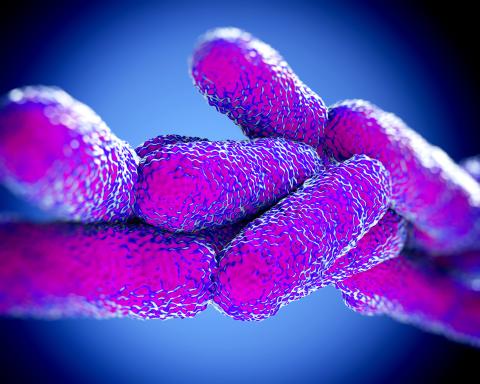Author profile

Linda M.N. Hoang, MSc, MD, DTM&H, FRCPC
One core function of a provincial public health laboratory is to conduct pathogen surveillance by characterizing the genetic material of microbes, also known as “fingerprinting,” to monitor circulating strains,... Read More
British Columbia was one of the first jurisdictions in the world to implement a saline rinse-gargle (“saline gargle”) collection method for COVID-19 testing. In September 2020, collection centres across BC started... Read More
Carbapenemase-producing organisms (CPOs) continue to be a public-health and infection-prevention and control problem globally. CPOs refer to gram-negative bacteria, normally found in the gut, that have acquired... Read More
Background Lymphogranuloma venereum (LGV) is a sexually transmitted infection (STI) caused by Chlamydia trachomatis serovars L1, L2, L2b, and L3. These serovars preferentially target lymph tissues, often leading to... Read More
A 45-year-old healthy female presents to you with a 3-week history of nonbloody diarrhea. Initially she experienced 5 to 10 watery bowel movements per day with abdominal pain, low-grade fever, fatigue, and nausea.... Read More
Clostridium difficile infection continues to be a common cause of health care–associated diarrhea in North America, contributing to patient morbidity and mortality. C. difficile is a gram-positive, spore-forming,... Read More
Legionnaires’ disease is often severe and is a potentially fatal form of bacterial pneumonia, particularly in individuals with compromised health status. Legionella pneumophila serogroup 1 accounts for the... Read More
Carbapenemase-producing organisms (CPOs) are bacteria with an acquired genetic resistance to broad-spectrum antibiotics, including the carbapenem family of drugs. Provincial data from as early as 2008 indicate that CPO-... Read More
When a patient presents with acute onset diarrhea, do you test? When you see several patients with vomiting and diarrhea over a short period, do you report to public health? In BC, summer marks the start of the... Read More
Tularemia is a zoonotic disease caused by Francisella tularenis, which is endemic in British Columbia and other parts of Canada.[1,2] There are various clinical presentations, and diagnosis may be difficult. ... Read More









